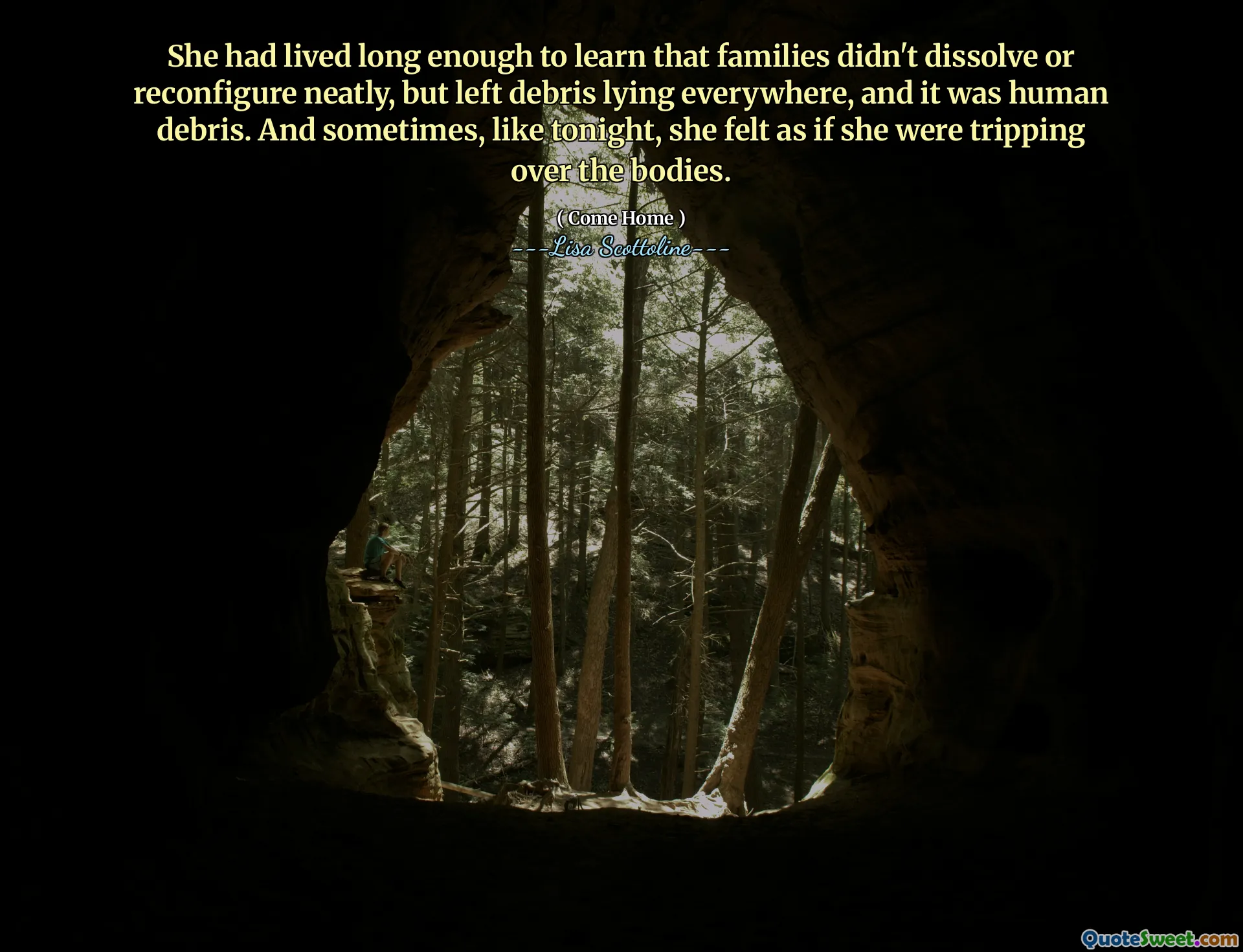
She had lived long enough to learn that families didn't dissolve or reconfigure neatly, but left debris lying everywhere, and it was human debris. And sometimes, like tonight, she felt as if she were tripping over the bodies.
This passage offers a profound reflection on the complexity and messiness of familial relationships. The imagery of debris and bodies underscores that families are often far from perfect; they leave behind remnants of pain, disappointment, and unresolved issues that linger like scattered wreckage. It challenges the romanticized notion that familial bonds are seamless or ideal, instead presenting them as a landscape of human experiences marked by conflict, loss, and raw emotion. The metaphor of 'tripping over the bodies' powerfully conveys how emotional baggage and unresolved trauma can occupy space in our lives, sometimes unnoticed until it impacts us dramatically. This perspective invites readers to consider the vulnerable reality behind familial connections — that they are composed of individuals with their own struggles, histories, and imperfections, all intertwined in ways that sometimes cause pain as much as comfort. It emphasizes the importance of acknowledging these 'debris' as part of life, understanding that healing might involve navigating through the remnants rather than pretending they don't exist. The quote resonates deeply because it reflects the universal experience of carrying emotional scars and confronting the aftermath of familial difficulties with honesty. Ultimately, it reminds us that while families are vital, their beauty often arises amidst the chaos and imperfections, and recognizing this is key to genuine understanding and empathy.






